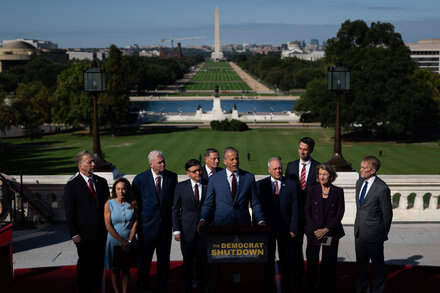As discussions continue regarding the future of the Gaza Strip, attention has turned to the potential approaches a future administration under former President Donald Trump might take. While a definitive plan has not been publicly detailed, insights from his past foreign policy offer a framework for understanding potential directions.

As discussions continue regarding the future of the Gaza Strip, attention has turned to the potential approaches a future administration under former President Donald Trump might take. While a definitive, comprehensive plan has not been publicly detailed, insights into his past foreign policy, statements, and diplomatic initiatives offer a framework for understanding potential directions.
Analysts and foreign policy observers anticipate that any plan from a Trump administration would likely prioritize Israeli security interests. This approach aligns with his previous Middle East policy, which saw significant support for Israel and efforts to isolate its adversaries. The immediate goal would likely involve ensuring the long-term incapacitation of Hamas and preventing future large-scale attacks.
Emphasis on Regional Alliances and Economic Solutions
A key characteristic of Trump’s diplomatic strategy has been an emphasis on fostering alliances with Arab states, as exemplified by the Abraham Accords. Experts suggest a future plan for Gaza might seek to leverage these relationships, possibly tasking regional partners with significant roles in post-conflict governance, reconstruction, and security. The involvement of countries like Egypt, Saudi Arabia, or the United Arab Emirates in managing humanitarian aid distribution and rebuilding infrastructure could be a central component.
Furthermore, consistent with his “Deal of the Century” peace proposal, a Trump administration would likely favor economic development and normalization as a pathway to stability, rather than focusing primarily on traditional political negotiations for a two-state solution. The premise would be that improved economic conditions and regional integration could alleviate tensions and offer alternatives to extremist ideologies, albeit under strict security parameters.
Conditional Aid and Governance Structures
Any substantial aid or reconstruction efforts for Gaza would likely come with stringent conditions, focusing on transparency and ensuring resources do not benefit groups hostile to Israel. The question of future governance for Gaza remains a critical challenge, with various proposals circulating among policy circles. While direct Israeli administration of Gaza has been largely ruled out, the establishment of an interim, internationally backed or regionally managed body, potentially with an Israeli security oversight component, could be considered.
The absence of a clear Palestinian Authority role in Gaza after the conflict presents a vacuum that a Trump plan would need to address. Solutions might explore mechanisms for civilian administration that are separated from security control, aiming to foster local leadership while containing threats. The ultimate objective, as interpreted from past statements, would be a more stable and secure environment that aligns with U.S. and Israeli strategic interests in the region.
Source: Read the original article here.





